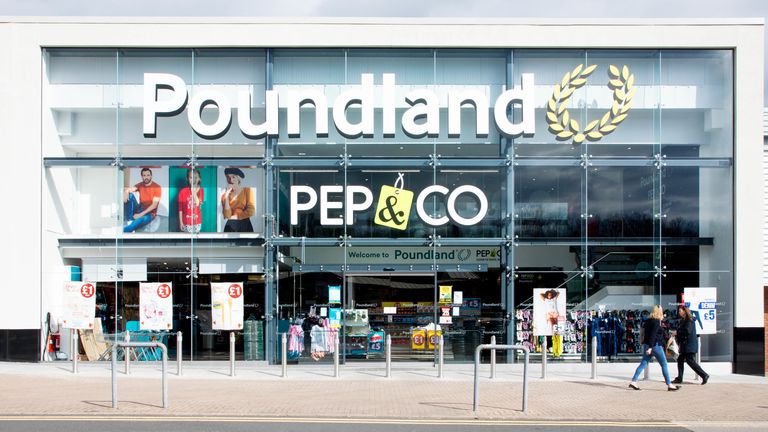The owner of Poundland has become the latest to warn of the impact of supply chain pressures as a slew of firms revealed how the crisis is taking its toll.
Pepco said the bounce-back in global demand after lockdowns had seen raw material prices surge while constrained freight capacity had “significantly increased” shipping costs recently.
The group, which has nearly 900 Poundland and Dealz stores in the UK and Ireland and over 2,000 more in Europe under the Poland-based Pepco brand, said it plans more investment to keep prices low as it expands further.
Backlog at port causing supply chain pressureIt came as the company reported a 19.4% rise in revenue to €4.12bn for the year to the end of September including like-for-like sales growth of 3.1% for Poundland and Dealz.
The update was published at the same time as company results from fast food delivery and furniture sales to coaches and the defence sector disclosed the widening impact of supply chain and labour shortage woes.
AdvertisementDomino’s Pizza acknowledged that it has had to navigate the current “well-publicised inflationary pressures and challenging labour market” and that it expects these to continue into the new year.
It also revealed an 8.8% rise in like-for-like sales for the three months to 26 September and said it was planning to hire 8,000 more drivers across the UK and Ireland.
More from BusinessBus, coach and rail operator National Express said there are “ongoing shortages of drivers across the sectors in which we operate” but it is acting to minimise the impact on revenues and keep a lid on costs.
It has negotiated 2% increases in driver wages for this year and next and said the recent fuel shortage had no impact on the business, with costs for the latter “hedged” – meaning they are insured against rising prices – into 2023.
Image: Domino’s Pizza has acknowledged inflationary pressuresMeanwhile, homewares retailer Dunelm cautioned on an uncertain outlook “in particular regarding supply chain disruption and inflationary pressures from freight and driver shortages”.
However, it said it felt “well placed” to manage the challenges with good stock levels across stores and warehouses, a lower dependence on seasonal product sales and “a higher propensity for customers to substitute products within homewares categories”.
The group reported an 8.3% rise in sales for the first quarter to 25 September and guided that full-year profits were expected to be in line with analysts’ expectations.
Elsewhere, defence and security contractor Qinetiq said it was “experiencing technical and supply chain issues on a large complex programme” which might result in a one-off charge – which it is working to keep to less than £15m.
The disclosures come after recent figures from the Office for National Statistics showed that one in 10 companies are passing on higher costs to their customers, adding to fears of surging inflation.
